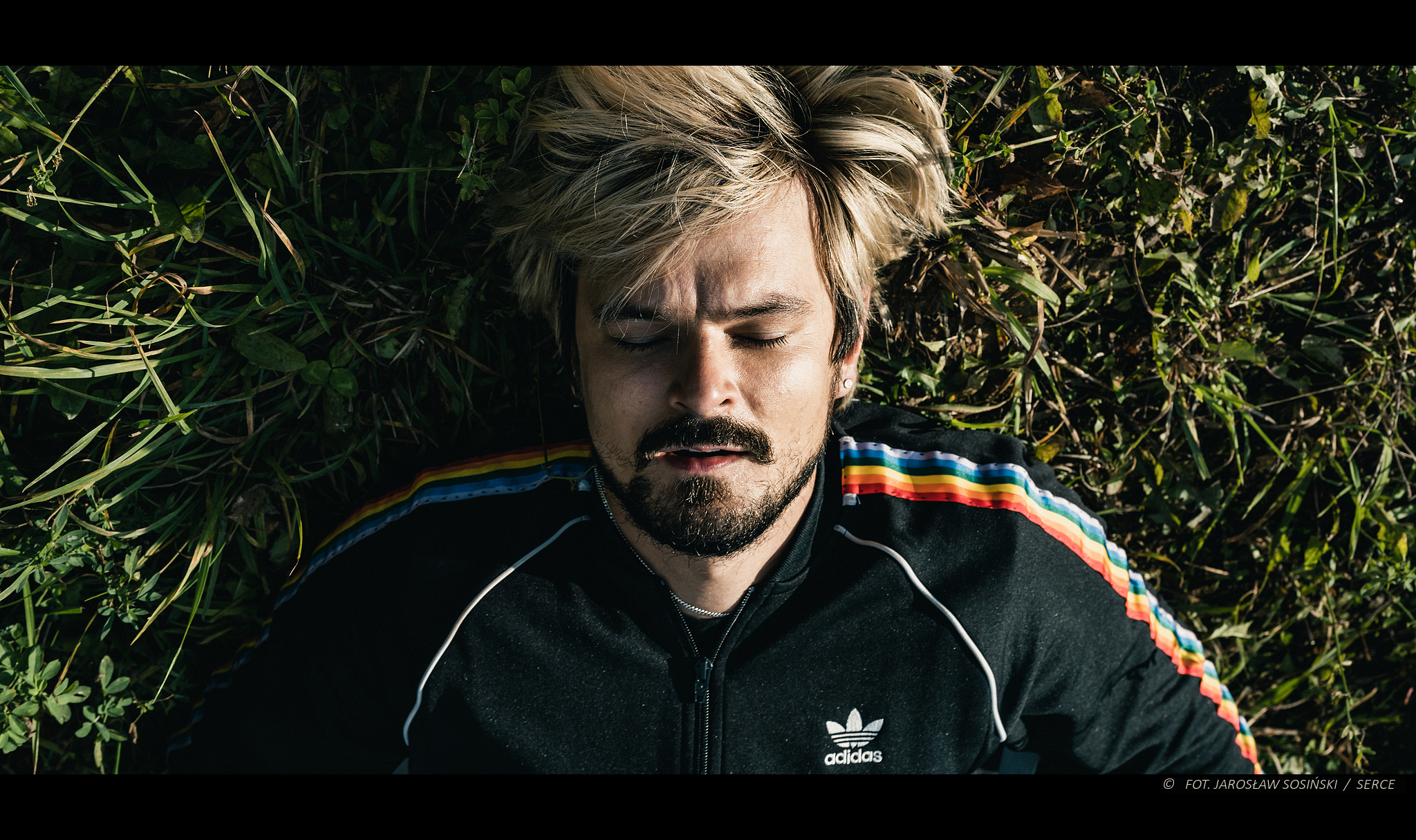
Daniel is a film about a heavy subject but it handles with sensitivity, thought and empathy. After the suicide of a young lesbian in his religious rural community, local gay artist Daniel tries to organise a tribute to her life, but meets with resistance and prejudice. It is based on a true story.
The titular character is one of the few out gay men in his farming community in Poland. He is so unapologetically himself that he seems have been allowed a place as an exception. Like how a guy I knew once said to me, “All gays are sick in the head, but you’re alright.” It helps that Daniel is a devout Catholic and he makes art which venerates his faith. Cutting about on his motorbike, never out his Adidas rainbow stripe trackies, he has no conflict in his identity as rural and religious, and gay and artistic. He protests for the rights of his rural community just as he protests for the rights of his queer community.
That effortless synthesis of identity begins to fracture after a young girl kills herself. Daniel, perhaps without intention, just through the sheer force of his character, is seen as a mother for local queer youth, he is someone they can go to who will be accepting. When she dies, he feels the weight of the failure to see how much she was struggling, how much pain she was in, how great was her need. He tries to organise for her a religious act called The Ways of the Cross.
Now, maybe like me, you have no idea what The Ways of the Cross is, but the film is able to give enough context that you can see it is an act recognising suffering. How she suffered, how we suffer, how Christ suffers, and how that suffering is not meaningless or in vain and we are not alone in it. Daniel builds a cross that he intends for the whole community to carry and walk with through the village. It is an act which will openly acknowledge the pain she was in, that they caused by their hatred or indifference to it, their collective contrition, and speak to a will to do better. It is intended as an act of healing.
It doesn’t go over like that. The priest explains how he can’t support this for a suicide. Some are appalled at this religious rite being used to promote ‘the gay agenda’ (of you know, living safely with dignity and respect). Others accuse Daniel of capitalising on this tragedy to make it about his art, his opinions, a spectacle. Instead of binding the community together, it only shows up how deep the divides, and the veneer of tolerance is tremulously thin.
The urban, secular queer community take up Daniel’s cross as a piece of art, try to frame it in a city exhibition space, to gawk at and intellectualise. Here Daniel is also alienated, he tries to make them understand that this is not a sculpture using religious iconography to provoke, it is an act of sincere faith.
The film handles the matter so well, giving enormous space to the full gamut of grief, and treating this community as a place with as much nuance, politics, art, culture and social dynamism as the city. A hard but worthwhile watch.